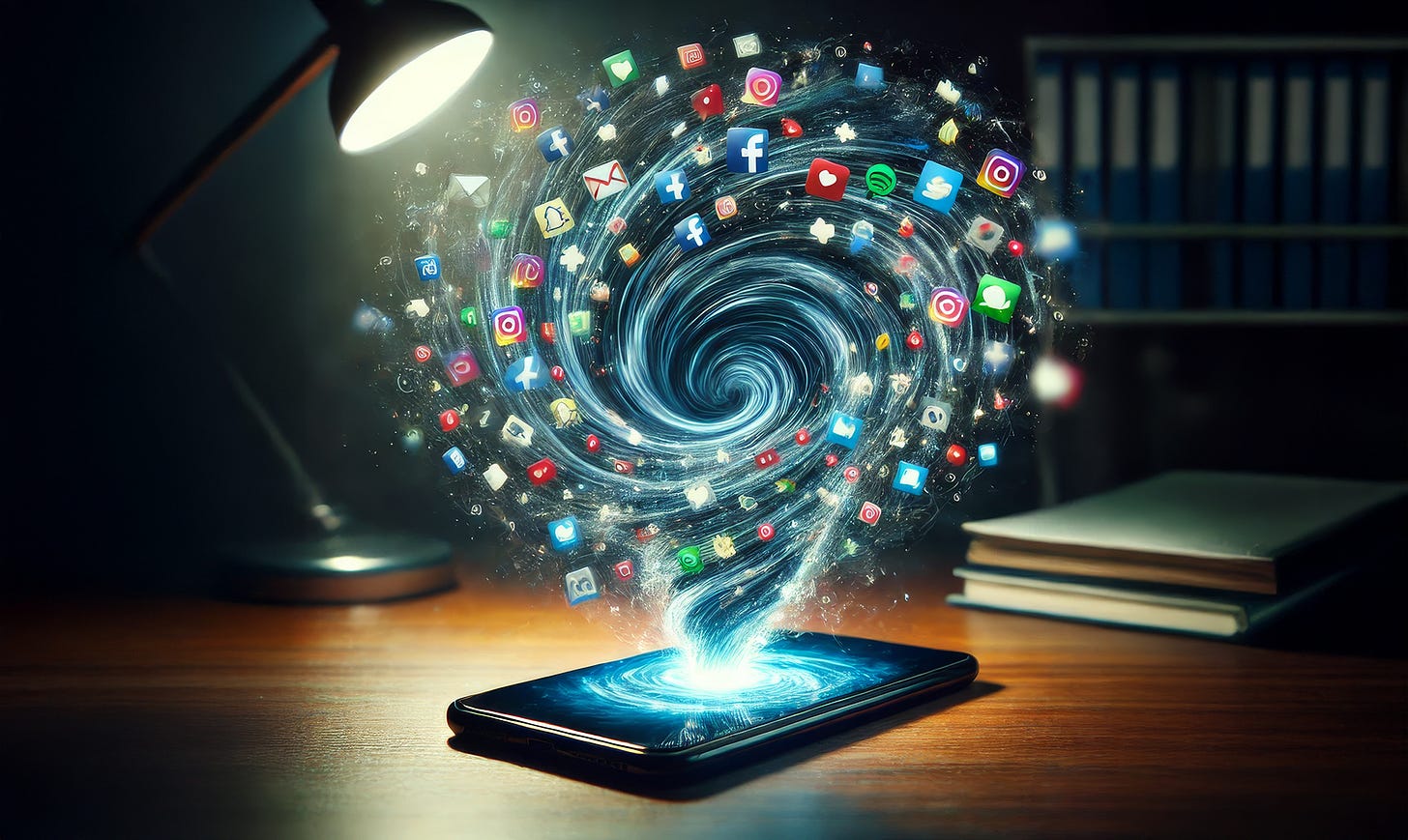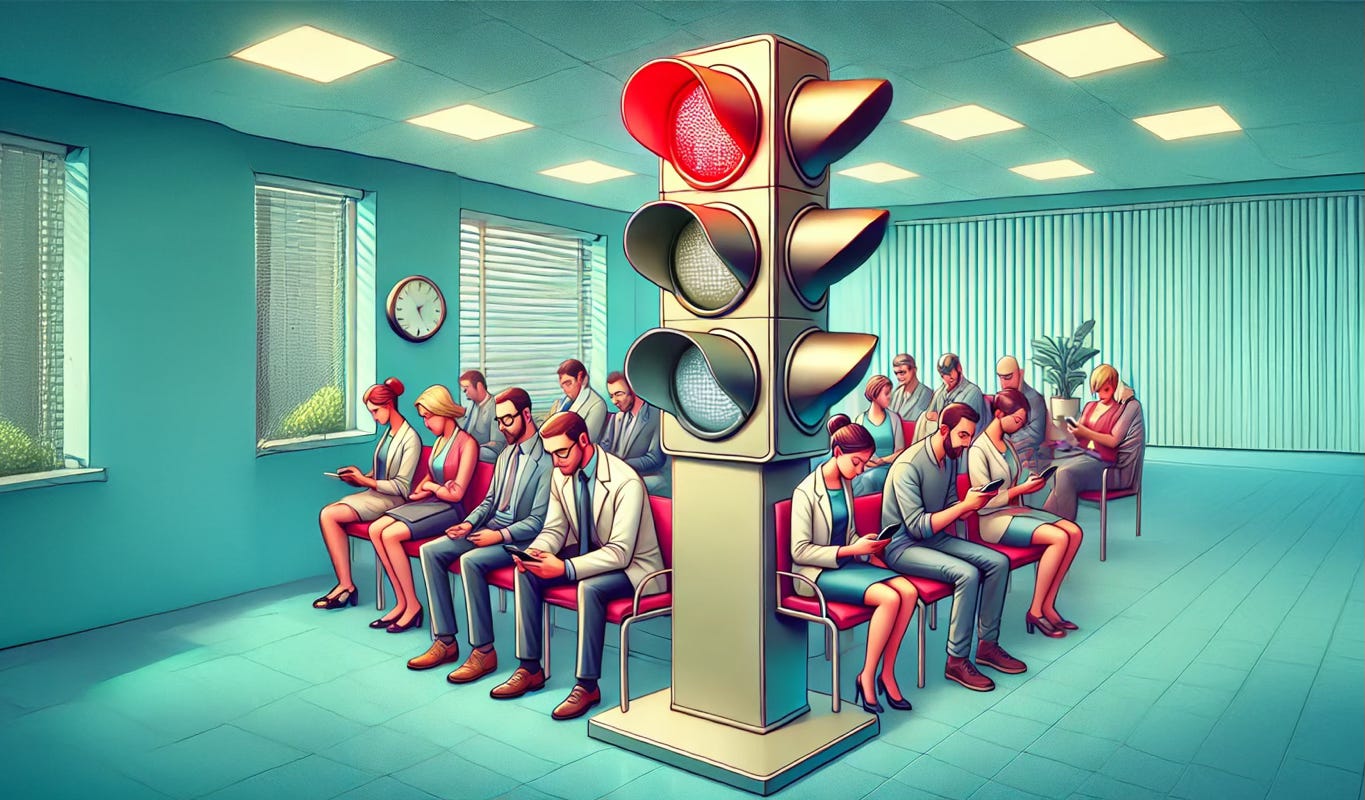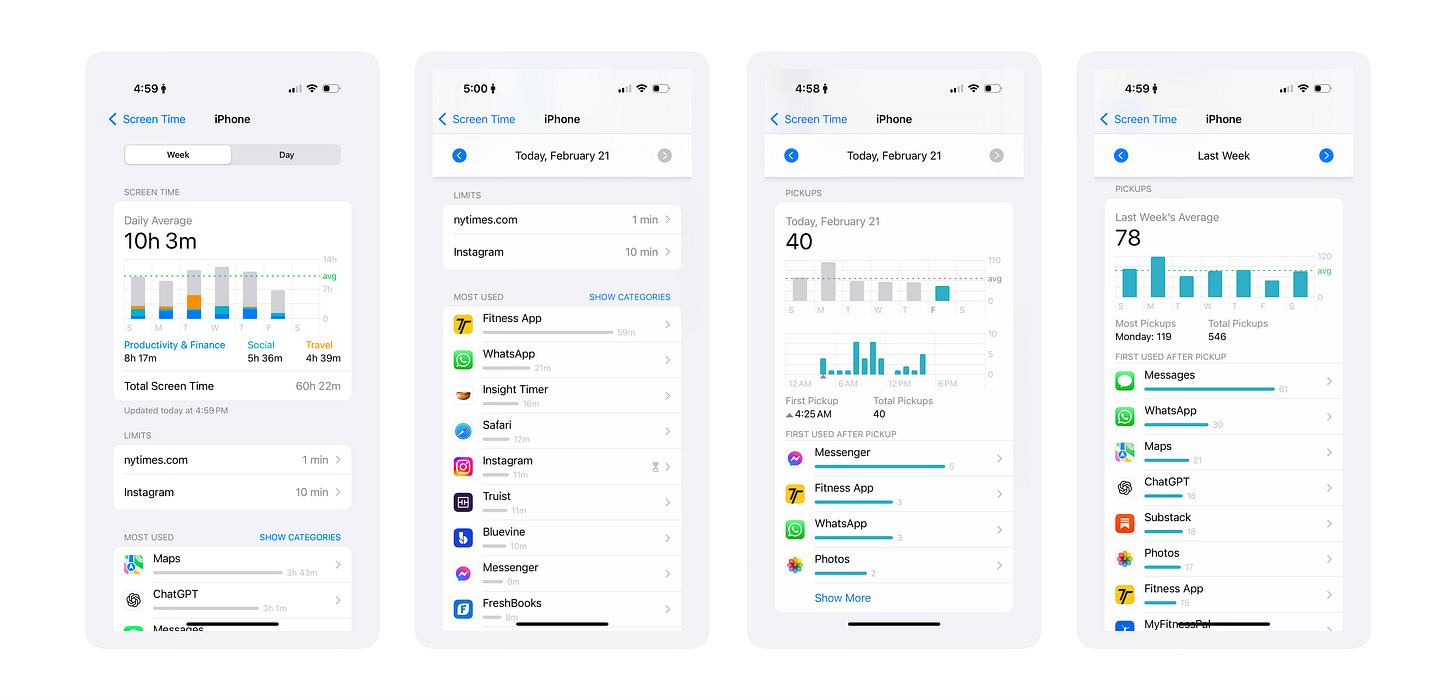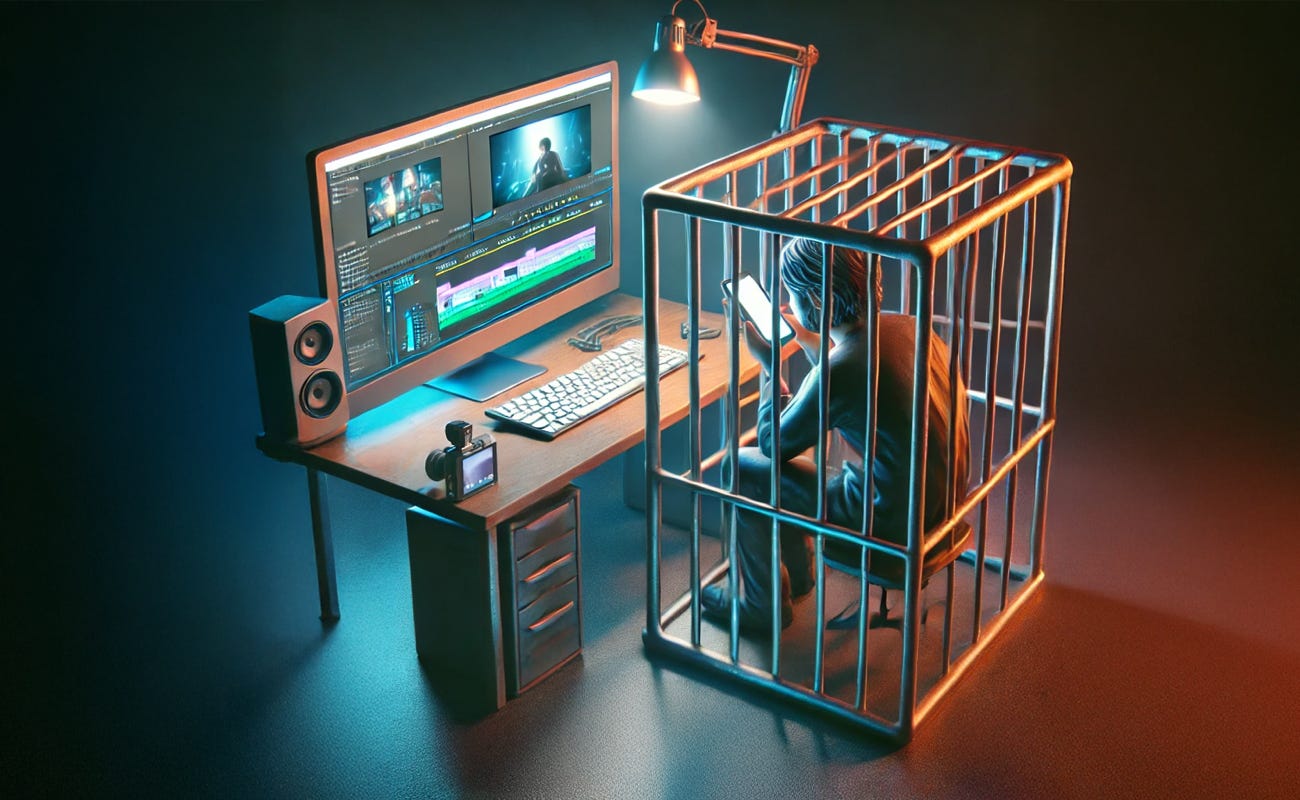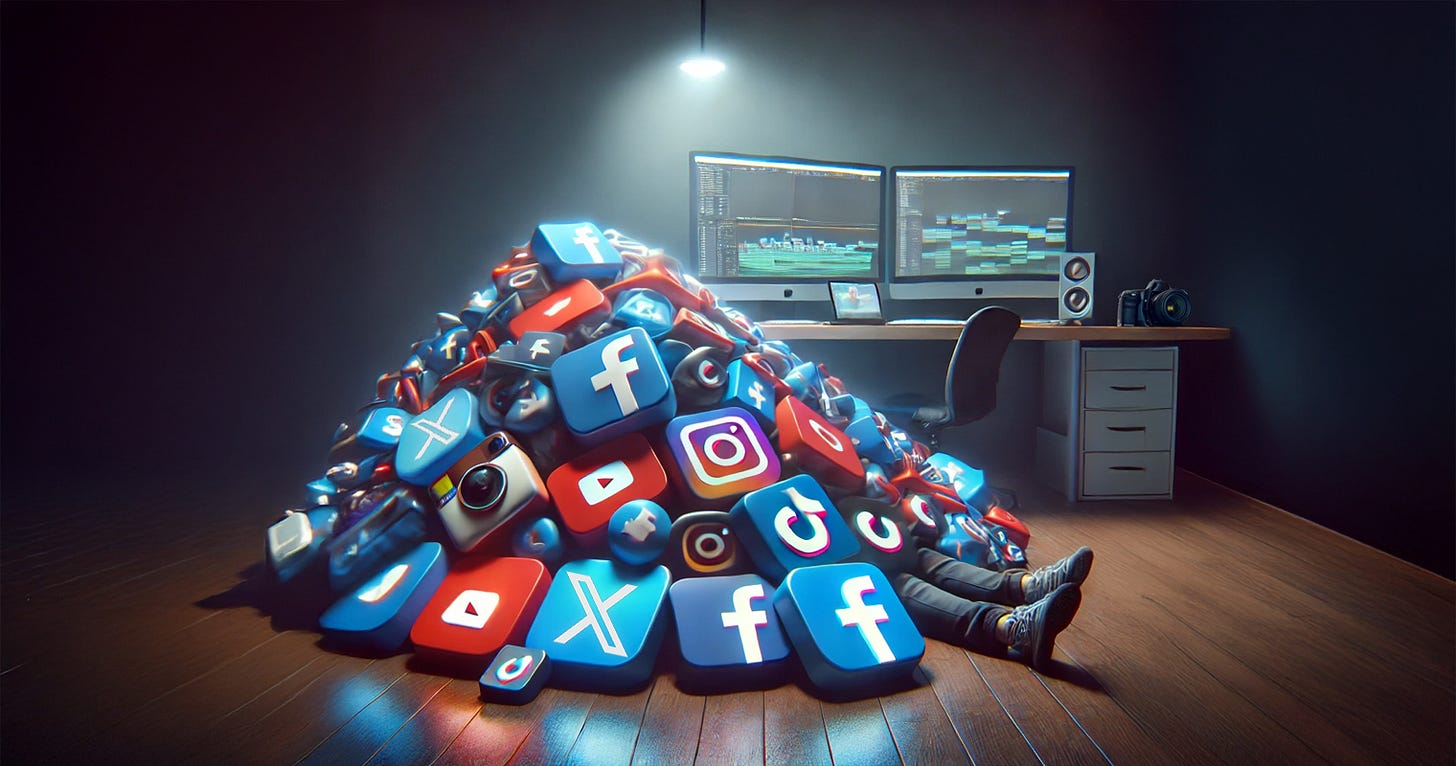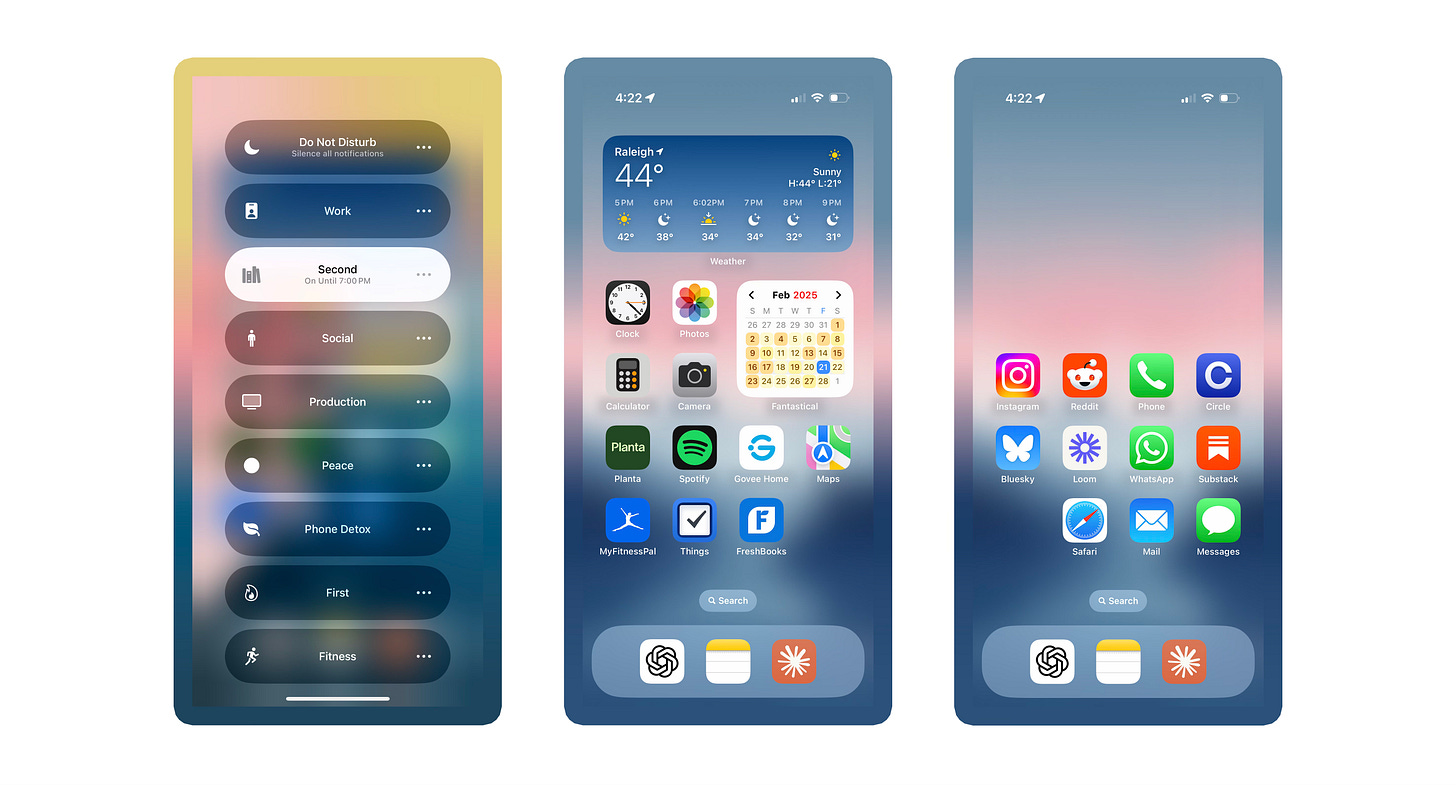Stuck in Scrolling? Reclaim Your Focus and Enhance your Creative Flow
Transform your attention from endless digital noise into powerful, clear action for lasting success as a sober creative.
This powerful tool is also a powerful distraction. We have access to an infinite amount of information always within reach. How many times can you sit back and recall after using your phone for a few minutes you wonder “what the hell just happened?” You get lost in the scrolling.
The Trap of Passive Consumption
These are the moments - waiting at a stoplight, sitting in a doctor's office, wishing time would speed up in the classroom. There's an invisible force. A force pulling you toward your phone. A desire to escape discomfort. You grab your phone, start watching videos, scroll through Instagram, and find temporary relief.
When you're starting your video business, this relationship with your phone becomes even more complex. You follow seasoned creators who make everything look effortless. Their work is phenomenal, polished, inspiring. But you're not seeing the years of work behind each post, the countless hours of experience that led to that professionally crafted style.
You keep scrolling, consuming tutorial after tutorial, thinking if you just watch enough, you'll magically reach their level. But here's the truth: your creative talents don't develop through endless scrolling and watching. That's just busy work. You have to create your own stuff. Yes, it's going to suck at first. No, it won't be good. But you learn by doing, by showing up, by creating.
The Real Cost of Scrolling
Time is our most valuable currency. While technology has revolutionized video production, it's also become a silent thief of our precious hours. Let me break this down: My phone's screen time report shows weekly I spend about 10 hours daily and about 5.5 hours of time on social media. At my standard rate of $150 per hour, that's $825 of potential revenue evaporating – weekly. Even if only a third of that time could be converted to billable work, we're still talking about thousands in lost income every month.
This isn't just about money lost – it's about opportunities missed. Every mindless scroll through my phone is a potential new client email not sent, a new technique not mastered, a creative idea not explored. These small moments compound. They become hours, then days, then weeks of potential growth sacrificed to the scroll. Habits are hard to break, but facing this uncomfortable reality is the first step to reclaiming your time and your creative potential.
The Cycle of Unconscious Behavior
Unconscious behavior is reaching for your phone before your brain knows why. It happens so quickly - you're in the middle of editing, hit a challenging transition, and suddenly your phone is in your hand. You don't even remember picking it up. The pattern is so deeply reinforced that it's become automatic, like muscle memory gone wrong.
Here's what's really happening: when we reach for our phones, we're usually running from discomfort. Stuck on a difficult client project? Phone. Unsure about your creative direction? Phone. Feeling intimidated by a complex shoot? Phone. It's our digital security blanket, promising instant relief from any creative tension or self-doubt.
But this temporary comfort comes at a cost. Every time we break our creative focus to scroll, we're training our brain that discomfort is something to escape rather than work through. The very moments we're avoiding - those challenging edits, tough creative decisions, complex problems - are exactly where our greatest growth happens. Our phones have become both our safety net and our creative cage.
The Energy Drain
What happens when there's too much of one thing? It crashes. Every thumb swipe gives your brain new information to process. Imagine: five YouTube videos, 30 TikTok videos, 30 minutes scrolling on Instagram. Each piece of content drains your mental energy. Your brain is connected to your body - it's all one system. The more you scroll, the more energy you use.
This drain hits particularly hard in video production. You're editing, trying to focus on where you’ll cut and adjusting music cues, when you hit a challenging section. What do you do? Take a "quick break" to check Instagram. Twenty minutes later, you're deep in someone else's behind-the-scenes video instead of finishing your own project. Now you're second-guessing your edit choices, your music feels wrong, and your creative confidence is shot. One scroll turned into creative paralysis.
Since you’ve stepped away and lost that creative momentum, you reach for your phone again, seeking another hit of distraction. The cycle continues. You're not moving, not creating, just scrolling. Your energy tanks, your food choices suffer, your creativity disappears. Everything's connected - when scrolling drains your energy, it steals directly from your creative output.
Breaking Free: Practical Steps
Here are a few ways you can shift your relationship with your phone:
Meditation
Become aware of your relationship with your phone.
Honestly ask yourself this question: Do I have a healthy relationship with my phone?
The next most important question: Do I want to change the relationship with my phone?
Practice meditation. Meditation is a practice of building awareness. You have to sit with yourself, you have to sit with your thoughts, and you notice. You begin to notice the things that cause you discomfort and you sit with that. The more you sit with that, the more you can be with it without reacting. The more you can be with it, the more you become aware of reaching for your phone. Then you begin to change the relationship with your phone.
Focus Mode
There are focus modes that have been implemented with iPhones (For the purpose of this essay, this is the type of phone that I use so I will suggest what is compatible with this one). You can specifically go in and customize how you engage with your phone. Explore what works for you.
My suggestions for when you're creating:
Turn off notifications
Make the screen that you interact with only have apps that you need
Keep your phone out of sight while creating
Create a basic home screen setup
Use a separate communication page with a dedicated time use throughout the day
Here's what I've started doing recently: I've made my home screen more basic than usual. Previously, I had everything mixed together - messages, email, and all that. Now, those are on a separate communication page, and I've set up a focus mode where I have a dedicated time throughout the day to use them. Given I just started this, there are so many moments where I notice myself going to WhatsApp, going to Messages or Instagram. So it's going to take time to shift this relationship.
And finally, the last tip I will give you: leave your phone out of your bedroom.





